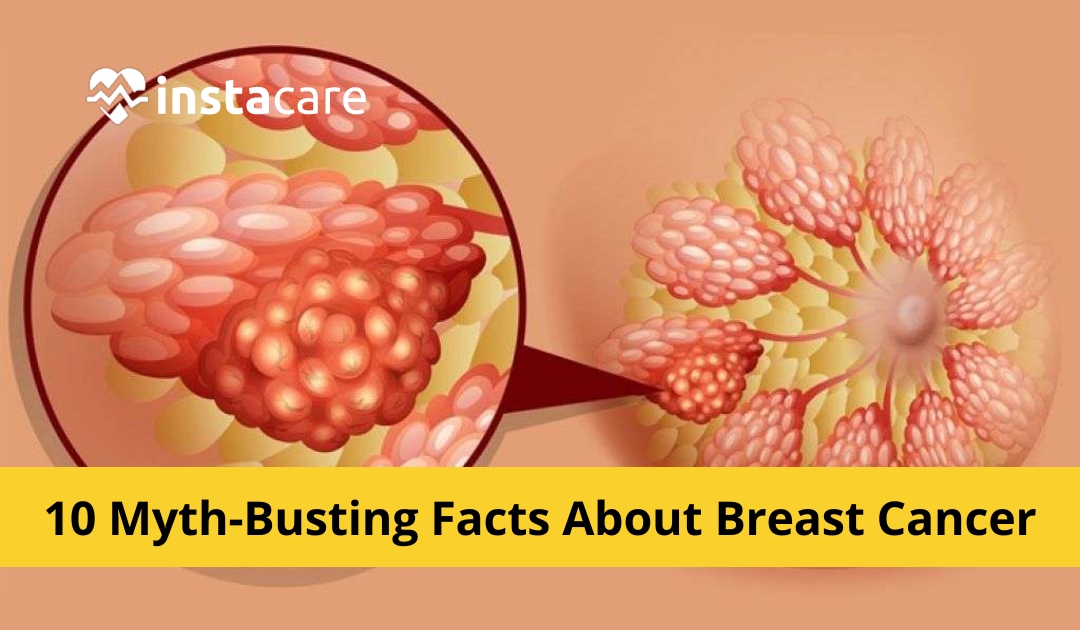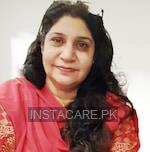Breast cancer takes the lives of thousands of women - and men - every year around the world. But, despite its deadly effects, there are still plenty of misconceptions out there about this potentially fatal form of cancer. To help dispel these myths and educate people on what breast cancer is really all about, we’ve gathered some facts from health-care professionals that will hopefully clear up any confusion around this medical condition. Read on to find out the top 10 myths about breast cancer in order to increase your understanding of the disease.
Myth #1 - breast cancer is only a women's disease
Breast cancer is a myths-shattering disease - while it is much more common in women, men can also be affected by this form of the cancer. In fact, according to studies, roughly 1 out of every 833 men are diagnosed with breast cancer. It may be less prevalent than women's cases (1 out of every 8 women will experience it), but that doesn't change the fact that anyone can suffer this terrible illness. With regular check-ups and early detection screening, it's possible for anyone to reduce their risk for developing breast cancer. Being aware of this common misconception may help save someone from an unwelcome diagnosis down the road.
Myth #2 - breast cancer is always deadly
Breast cancer is a serious and life threatening disease, but myths about this type of cancer persist. While it is true that breast cancer can always be deadly if not caught early enough or treated effectively, the reality is that early detection of this type of cancer through mammograms and other screening methods has been proven to save lives. By knowing the myths, such as radiation exposure from mammograms leading to breast cancer, myths can be debunked and better decisions can be made to reach accurate diagnoses which can help in fighting against this deadly disease.
Myth #3 - only older women get breast cancer
Breast cancer myths can be dangerous, especially when they are believed to be true. One such myth that unfortunately persists is that only older women get breast cancer. This couldn't be further from the truth: people of any gender and age can get breast cancer, and everyone should be aware of its signs and symptoms; it pays to know what's normal for your own body. While it is more common in those 50 years old, it can affect anyone; detecting a lump early via self-examination or visiting a doctor for a mammogram could save your life! It's also important to remember that there are lifestyle factors which may contribute to an increased risk of breast cancer, such as smoking or drinking too much alcohol - so staying on top of your health could be a great preventative measure.
Myth #4 - you have to have a family history of breast cancer to get it
While it's true that changes to certain genes can increase the probability that someone with a family history of breast cancer will get it, myths about genetic predisposition lead many to falsely believe that you have to have a family history of this disease in order to be diagnosed with it. In reality, anyone can contract breast cancer; although genetics may play a role, there isn't one exact cause generally associated with the disease. It is important to remember myths are just myths and not rely too heavily on them when assessing one's risk of contracting breast cancer.
Myth #5 - if you have dense breasts, you're more likely to get breast cancer
Research has shown that women with dense breast tissue are more likely to get breast cancer. This is due to the increased number of cells present in dense breasts, leading to a higher risk of abnormal cell growth. Unfortunately, myths about who is at risk for breast cancer still circulate so you may encounter disbelievers when discussing your risks.
To be safe and understand your body better, ensure regular medical checkups to catch any irregularities earlier. Regular mammograms can also help early detection or possible signs of breast cancer in women with dense breasts. If you’re concerned about your risk level and myths surrounding it, speak with your doctor to further discuss and take actionable steps forward.
View More: 10 Early Symptoms Of Breast Cancer That Every Woman Should Know
Myth #6 - if you've had breast cancer before, you can't get it again
Having breast cancer once doesn't mean that you will get it again. Despite popular myths, reinforcing the idea that women who have had it before are more likely to develop it again, this isn't necessarily true. The condition is considered a disease of recurrent episodes in some cases, meaning that tumors may recur in the same area, but this is extremely rare and usually dependent on individual cases and their circumstances.
Women with underlying genetic conditions aside from hereditary breast cancer may experience recurrent episodes within a short period of time. Nevertheless, regardless of your individual cases and family history, having breast cancer before does not mean you necessarily will experience a recurrence again.
Myth #7 breast injury results in breast cancer
Although myths about breast cancer are numerous and varied, research shows that there are few risk factors that can increase one’s chance of developing this devastating illness. One such risk factor is a serious injury to the breast area, which can cause changes in breast tissue and cells that may lead to an increased chance of breast cancer down the line.
However, it is important to note that mere physical contact with your breasts or minor injuries like scratches or bumps will not increase one’s likelihood of developing cancer; only serious injuries such as fractures should be considered as potential factors for increasing risk. That being said, if you experience any kind of pain in your breasts or any changes in their appearance, you should see a doctor immediately for examination.
Myth #8 i won’t get breast cancer because it’s not in my genes
While it is true that genetic predisposition and a family history of breast cancer can increase your risk, myths still exist that may encourage unhealthy behavior. It is incorrect to assume that you will not get breast cancer if you do not have the gene mutations typically associated with this estrogen-dependent cancer.
Everyone has some degree of risk, especially with age. Women should therefore take preventive steps like regular self-exams, attending medical check-ups twice a year, maintaining a healthy weight and exercise level, reducing alcohol consumption, and limiting processed meat intake to reduce their risk regardless of their genetics. The myths about breast cancer should not lead to lifestyles that leave one's body unprotected from the disease no matter their genetic makeup which can lead to devastating consequences.
Myth #9 every lump in your breast is cancer
Breast cancer myths can create unnecessary fear, leaving those at risk to feel overwhelmed and frightened. Many myths are based on myths that every lump in your breast is cancerous. It is important to understand the truth behind this myth: not every lump is cancerous.
In fact, it’s estimated that up to 90 percent of lumps detected in the breast are benign and caused by other conditions such as fibroadenoma and cysts. That said, it's important for women to be alert and schedule mammograms or other imaging tests if changes like feeling a new lump or seeing skin changes occur. Early detection can mean better outcomes when it comes to cancers of all types.
View More: Top 10 Ways To Prevent Breast Cancer
Myth #10 breast cancer will always result in lump formation
Breast cancer is one of the most common forms of cancer, but myths and misinformation about it still spread. While it is true that a lump can form if someone has breast cancer, not all lumps are due to cancer. In fact, benign breast lumps are much more commonly seen than malignant ones - they can appear at any age and are usually painless.
It is important to note, however, that regardless of whether the lump is benign or malignant, potential changes in the breast should always be checked out by a physician. Regular self-examinations and mammograms can detect breast changes in their early stages when they are easier to treat and manage.
Conclusion
There are many myths about breast cancer, but it is important to separate fact from fiction. Breast cancer is a serious disease, but if caught early, it can be treated effectively. If you have any concerns about breast cancer, talk to your doctor.
Please book an appointment with the Best Doctors For Breast Cancer in Pakistan, Karachi, Islamabad, and all major cities of Pakistan through InstaCare, or call our helpline at 02137136090 to find a verified doctor for your disease.
Source: https://instacare.pk/blog/myths-about-breast-cancer












